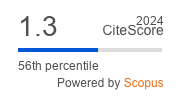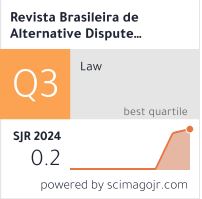Alternative dispute resolution in commercial transactions
a comparative study between the UK and Bangladesh jurisdiction
Parole chiave:
Alternative Dispute Resolution, Commerciality, Civil Procedure CodeAbstract
Alternative Dispute Resolution (ADR) entities have been authorized by national law to either offer a solution that, if accepted by both parties, will become binding on them or to impose a solution that will become binding on them regardless of their acceptance. According to the Money Loan Court Act 2003 of Bangladesh, ADR bodies have to appoint natural people who fulfill the criteria of knowledge, independence, and impartiality to complete the entire process of ADR successfully. Therefore, ADR processes can only be run by court-ordered mediation or autonomous administrative agencies, not the financial sector. The Code of Civil Procedure 1908 in Bangladesh clarifies that this procedure has been provided so that “the principles of independence and impartiality have been observed”. ADR is an avenue to resolve a civil case without going to the court. There are diverse mechanisms of ADR that can resolve the issue. Undoubtedly, ADR has many advantages. However, it is pertinent to note that it has disadvantages as well. ADR has been promoted, and the concerned parties have been encouraged to use it before or during the trial. Lord Justice Woolf, a prominent jurist of the UK, solicited for ADR to avoid cost, delay and complexity in civil cases. On the other hand, ADR is not so familiar in Bangladesh. This paper aims to discover how Bangladesh promotes ADR in commercial disputes and how Bangladesh can follow the UK approach in this respect.
Riferimenti bibliografici
Anthony Evans, Of Judges and Arbitrators, 67 (3) Arbitration 254-262 (2001).
A. F. M. Maniruzzaman, International Commercial Arbitration in the Asia-Pacific: Asian Values, Culture and Context, 30 (11) International Business Law Journal 508-515 (2002).
A. J. Van Den Berg, Justifiable Doubts as to the Arbitrator’s Impartiality or Independence, 10 (3) Leiden Journal of International Law 509-520 (1997).
Arthur Marriott, Arbitrators and Settlement, 70 (4) Arbitration 297-307 (2004).
B. Manzanares Bastida, The Independence and Impartiality of Arbitrators in International Commercial Arbitration from a Theoretical and Practical Perspective 6 (1) REM (2007), http://revistas.uexternado.edu.co/index.php/emerca/article/download/2070/1855.
David W. Plant, The Arbitrator as the Settlement Facilitator, 17(1) Journal of International Arbitration, 143 (2000).
J Gillis Wetter, The Internationalization of International Arbitration: Looking Ahead to the Next Ten Years, 11(2) Arbitration International 117 (1995).
Luke R Nottage & Romesh Weeramantry, Investment Arbitration in Asia: Five Perspectives on Law and Practices, 28 (1) Arbitration International (2012).
Piero Bernardini, The Role of the International Arbitrator, 20 (2) Arbitration International 113-122 (2004).
Robert Merkin QC, Substantive Jurisdiction and the Arbitration Act 1996, 3 Journal of Business Law 273-284 (2021).
Sameer Sattar, Asian Pacific Arbitration Review on Bangladesh, Country Chapter, (2016).
Susan Blake, Julie Browne & Stuart Sime, A Practical Approach to Alternative Dispute Resolution, (Oxford University Press, 2020).
Will Pryor, Alternative Dispute Resolution, 62(3) SMU Law Review 843-854 (2009).
Yves Fortier, Arbitrators, Corruption, and the Poetic Experience: ‘When Power Corrupts, Poetry Cleanses, 31, Journal of International Arbitration 367–380 (2015).
Downloads
Pubblicato
Fascicolo
Sezione
Licenza
Copyright (c) 2024 Revista Brasileira de Alternative Dispute Resolution - Brazilian Journal of Alternative Dispute Resolution - RBADR

TQuesto lavoro è fornito con la licenza Creative Commons Attribuzione 4.0 Internazionale.
No royalties or other compensation shall be due for the publication of the works.
The opinions expressed by the authors of the articles and reviews are their sole responsibility.









